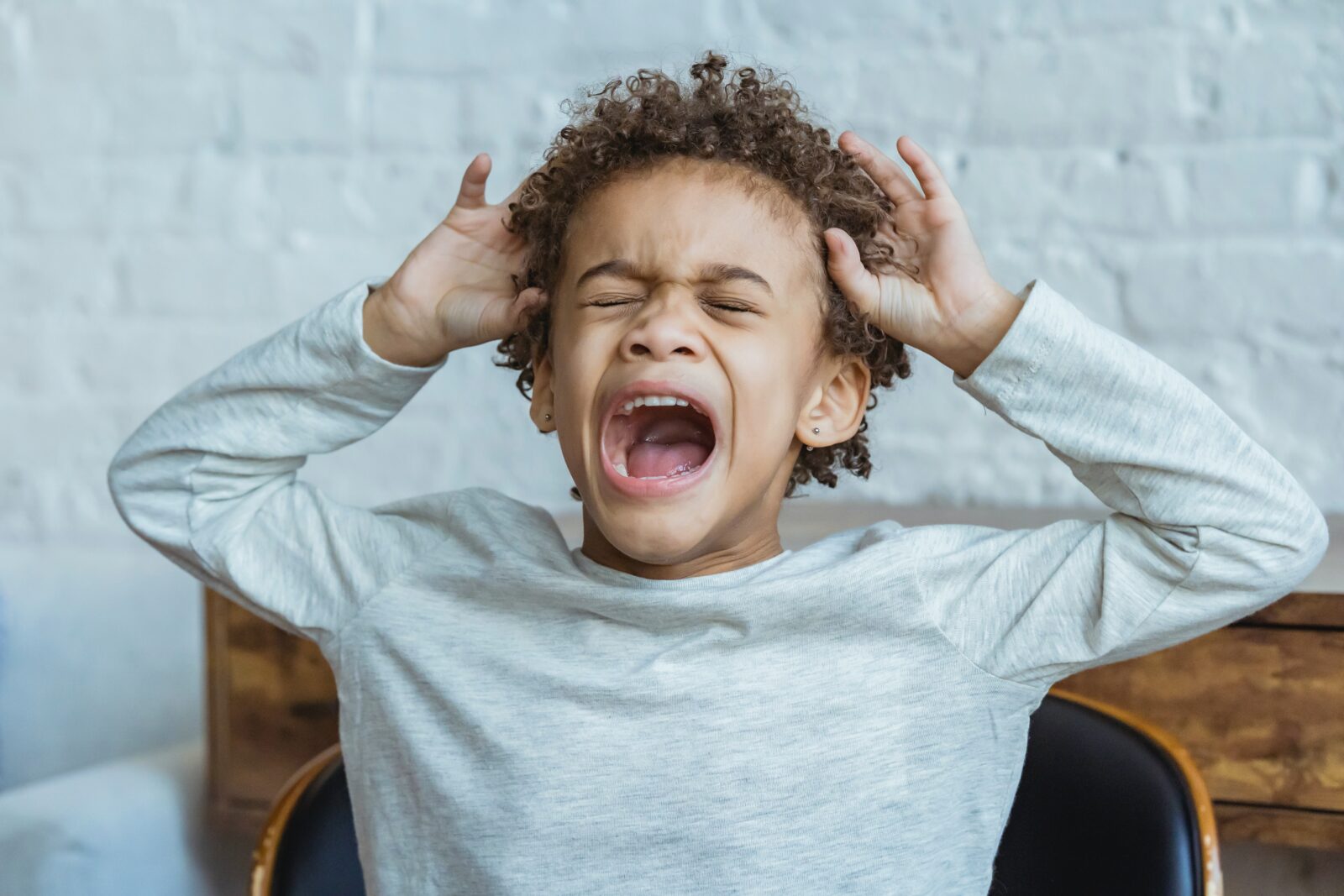How do you know when you, as the parent, are reinforcing the behavior you’re seeing in your child that drives you absolutely bonkers? It doesn’t matter if you have a younger kid, an older kid, or maybe even a teenager. Think about a time when there’s some type of behavior that’s going on with your child and it just drives you bonkers and you want it to stop. What do we do to make it stop? We yell at them, we punish them by taking their phone, or we take their TV time, electronics, or whatever it is that they feel punished about. What are we actually doing by punishing them? We want them to feel enough pain that they stop that behavior. Is the behavior stopping? No matter how much we punch them, is that behavior stopping? Probably not. How do I know this? Because I too go through this. I went through this with my older boys, and I went through it with my twins.
You would think, as a professional, that it would not happen. If I’m teaching you guys why it’s happening, it’s happening because I have just had this epiphany that I need to stop and think about why this behavior is happening. It’s easier to see when I’m on the outside looking in, when I’m with you and I’m looking at your family, or when I’m with someone else and I’m looking at their family. It’s very hard to see it when I’m doing it myself, but when I see my husband doing it, I can see it, and I see how he may or may not be encouraging that behavior. I get to flip the coin and be like, “Oh wow, I do that too. I encourage it.” What do I mean by all of this? What I mean is that if your child is having a meltdown because you said that they can’t do something, my child will say, “Well, fine, I’m not coming out and I’m not going to eat dinner.” or “I’m not going outside to play with my friends if I can’t take my nerf gun outside or whatever it is.”
So we say, “Fine, then don’t go outside and play with your friends. That would be a logical thing, you’ve owned it, you say it and it’s done.” They go in their room and they’re upset, they feel sad, and they’re crying about it, and then all of a sudden they wipe their tears away, they settle down, they come back out to the room, and say, “I’m sorry, it’s okay. It’s fine, I get that you don’t want you to bring my Nerf gun outside. Can I go back outside?” What do we parents do? “Okay, you can go outside.” Why? Because they’ve calmed down, they’ve agreed they’re not going to take the Nerf gun outside, and then we let them go play. Wrong. We don’t do that. We should not do that. Why? Because we have that same behavior going on and on. We tell them no; they can’t have what they want. They throw a fit, and then when they calm down, they actually get to go back outside or do whatever they said. We’re not allowing them to take ownership of what they’re saying.
I’m not saying that if your child says that I’m not going to eat for a week, you don’t let them eat for a week. I am not saying that. If they’re saying things like, “Then fine, I’m not going to go play outside,” then don’t let them go play outside. The minute you show them that their words mean something and that there’s purpose behind the threat that they’re giving you, they probably won’t do it again because they’re not getting their way. What they really want is the release of those emotions. Here’s the strategy: when your child is getting upset because it’s a “No, you can’t take this outside,” “No, you can’t do that,” “No, you’re not going to come with me if you keep talking that way,” or whatever it is, and they start to get upset and start to say things, my advice is to acknowledge that they’re upset.
“I can appreciate you not liking my answer. I get you wanting a ‘yes,” but I hear you, I definitely hear you, and it’s still ‘no.” Before you tell me that you’re not going to go outside and play with your friends who are waiting for you, I want you to be aware of what you’re saying because you’re upset. When you’re done being upset, you’re still going to have the choice that you made. What do you need right now? Do you need to go to your room and just have a few minutes to release whatever you need to release and then go outside with your friends? What specifically are you looking for to release that emotion without having to follow through with the words that you use? “I’m going to tell you, I bring this up because this has happened a lot lately in our home: that my 10-year-old, especially when he is upset, will say things thinking he’s hurting us, but in actuality, he’s stopping himself from going further after the emotion is over and done.
We are really making sure and making a point to tell him, “Choose your words wisely. When the emotion is gone, you’re going to be stuck with that choice.” As we started implementing this, he is choosing the right words when he’s upset. We are teaching him to take ownership of his emotions. When I say regulate the emotion, it’s not pretending that emotion doesn’t exist; it’s taking ownership of that emotion and regulating it, meaning how long do you want to stay in that emotion. It’s not affecting your next activity; that’s what’s regulating it in this aspect.
Listen to the full episode here:
For more parenting content, visit my YouTube channel:

